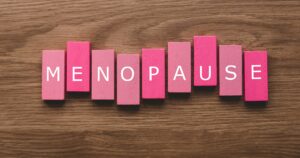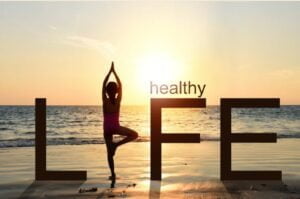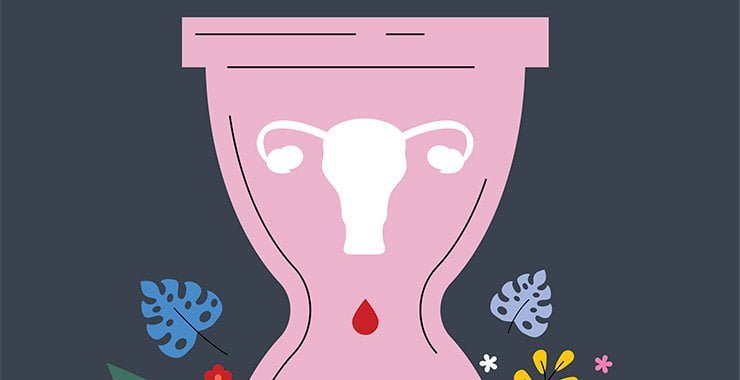Menopause, a natural phase in a woman’s life, marks the end of the reproductive years. Typically occurring in the late 40s or early 50s, menopause brings about a series of physical and emotional changes. In this article, we’ll explore effective menopause solutions to navigate through this transitional phase with ease.
Contents
Understanding Menopause Symptoms

Menopause is a natural biological process that marks the end of a woman’s reproductive years. As the body undergoes hormonal changes, various symptoms emerge, impacting both physical and emotional well-being. Understanding these menopausal symptoms is crucial for women navigating this transformative phase of life.
1. Physical Symptoms:
Menopausal symptoms often manifest physically, and they can vary widely among women. Common physical symptoms include:
- Hot flashes and night sweats
- Irregular periods or changes in menstrual flow
- Sleep disturbances and insomnia
- Vaginal dryness and discomfort during intercourse
- Changes in skin elasticity and tone
- Weight gain and changes in body composition
2. Emotional and Psychological Changes:
The hormonal fluctuations during menopause can also impact emotional and psychological well-being. Women may experience:
- Mood swings and irritability
- Anxiety and feelings of restlessness
- Decreased libido
- Memory lapses and difficulty concentrating
- Changes in stress tolerance
- Emotional sensitivity
Different Menopause Solutions
Navigating through menopause involves addressing a range of physical and emotional changes. Fortunately, there are various solutions available, ranging from traditional approaches to natural remedies. Here, we explore different menopause solutions to help women manage this transformative phase with confidence.
Hormone Replacement Therapy (HRT)
Hormone Replacement Therapy (HRT) is a medical treatment that involves the administration of hormones to replace or supplement the body’s natural hormone levels. It is commonly used to address hormonal imbalances or deficiencies, especially during transitional periods such as menopause or andropause.
The most well-known application of HRT is in managing symptoms associated with menopause in women. Menopause is a natural biological process that occurs when a woman’s ovaries cease to function, leading to a decline in estrogen and progesterone production. HRT can help alleviate symptoms such as hot flashes, night sweats, mood swings, and vaginal dryness.
Lifestyle Changes

Lifestyle changes refer to modifications in daily habits, behaviors, and choices that can have a significant impact on overall health and well-being. These changes can contribute to the prevention of various health conditions, the management of existing conditions, and the promotion of a healthier and more fulfilling life. Here are some key areas where lifestyle changes can be beneficial:
1. Diet and Nutrition:
- Balanced Diet: Consume a well-balanced diet rich in fruits, vegetables, whole grains, lean proteins, and healthy fats.
- Portion Control: Be mindful of portion sizes to avoid overeating.
- Hydration: Stay adequately hydrated by drinking enough water throughout the day.
2. Physical Activity:
- Regular Exercise: Engage in regular physical activity, incorporating both aerobic exercises (e.g., walking, running) and strength training.
- Incorporate Movement: Find opportunities to move throughout the day, such as taking the stairs or going for short walks.
- Flexibility and Balance: Include activities that enhance flexibility and balance, such as yoga or tai chi.
3. Sleep Hygiene:
- Consistent Sleep Schedule: Establish a regular sleep routine by going to bed and waking up at the same time each day.
- Comfortable Sleep Environment: Create a comfortable and dark sleep environment to promote restful sleep.
- Limit Stimulants: Avoid stimulants like caffeine close to bedtime.
4. Stress Management:
- Mindfulness and Meditation: Practice mindfulness and meditation techniques to manage stress.
- Time Management: Organize and prioritize tasks to reduce feelings of being overwhelmed.
- Relaxation Techniques: Use relaxation techniques such as deep breathing or progressive muscle relaxation.
Herbal Supplements
Many women explore herbal supplements as a complementary or alternative approach to managing symptoms associated with menopause. It’s important to note that while some herbs may offer relief for certain symptoms, scientific evidence of their effectiveness and safety can vary. Always consult with a healthcare professional before incorporating herbal supplements into your routine, as they may interact with medications or have contraindications.
Here are some herbal supplements as menopause solutions:
- Black Cohosh (Actaea racemosa): This herb has been traditionally used to alleviate symptoms such as hot flashes, night sweats, and mood swings. While some studies suggest potential benefits, more research is needed to confirm its efficacy and safety.
- Soy: Soy contains phytoestrogens, which are plant compounds with estrogen-like effects. Some women find relief from hot flashes and other symptoms by including soy products in their diet. However, results from studies are mixed, and individual responses may vary.
Mind-Body Techniques
Mind-body techniques encompass a variety of practices that focus on the connection between mental, emotional, and physical well-being. These techniques recognize the intricate relationship between the mind and the body, emphasizing that mental and emotional factors can impact physical health, and vice versa. Incorporating mind-body techniques into one’s routine may help manage stress, improve overall well-being, and complement medical treatments. Here are some common mind-body techniques as menopause solutions:
- Mindfulness Meditation: Mindfulness involves cultivating awareness of the present moment without judgment. Meditation techniques, such as focused breathing or body scan meditations, are often used to enhance mindfulness. Research suggests that mindfulness meditation can reduce stress, improve cognitive function, and enhance overall mental well-being.
- Yoga: Yoga is a mind-body practice that combines physical postures, breath control, and meditation. It has been associated with various health benefits, including stress reduction, improved flexibility, and enhanced mental clarity. Different forms of yoga, such as Hatha, Vinyasa, or Kundalini, offer various approaches to mind-body integration.
- Acupuncture: Acupuncture involves inserting thin needles into specific points on the body. Many women report a reduction in hot flashes, mood swings, and sleep disturbances after acupuncture sessions.
Vaginal Estrogen Therapy

Vaginal estrogen therapy (VET) is a medical treatment that involves the use of estrogen to address specific conditions related to the vaginal and urogenital health of women. Estrogen is a hormone that plays a crucial role in maintaining the health of the female reproductive system, including the vagina.
Vaginal estrogen therapy is commonly prescribed as menopause solutions:
- Vaginal Atrophy: Also known as atrophic vaginitis, this condition involves the thinning, drying, and inflammation of the vaginal walls, often occurring as a result of decreased estrogen levels. Vaginal atrophy is commonly associated with menopause but can also occur in women who have undergone surgical removal of the ovaries or who are experiencing hormonal changes due to certain medical treatments.
- Dyspareunia (Painful Intercourse): Vaginal dryness and atrophy can lead to discomfort or pain during sexual intercourse. VET can help improve vaginal lubrication and reduce pain associated with sexual activity.
- Recurrent Urinary Tract Infections (UTIs): Estrogen plays a role in maintaining the health of the urogenital tissues. VET may be recommended to reduce the frequency of UTIs by improving the health of the vaginal and urethral tissues.
Support Groups and Communities
Support groups and communities play a crucial role in providing individuals with a platform to connect, share experiences, and receive encouragement or advice from others facing similar challenges.
These groups can cover a wide range of topics, including health conditions, mental health, lifestyle changes, personal growth, and more.
Professional Counseling
Professional counseling, often referred to as therapy or psychotherapy, is a collaborative process between a trained mental health professional and an individual or group seeking assistance. Counseling aims to help people overcome emotional, psychological, or behavioral challenges, and it can provide support for personal growth and overall well-being. Here are key aspects of professional counseling:
Types of Professional Counseling:
- Individual Counseling: One-on-one sessions between a counselor and an individual client. This format allows for personalized attention and a focus on the client’s specific concerns.
- Couples Counseling (Marriage or Relationship Counseling): A form of therapy that involves a counselor working with a couple to address issues within the relationship, improve communication, and enhance overall relationship satisfaction.
- Family Counseling: Involves a counselor working with family members to address conflicts, improve communication, and strengthen family relationships.
Education and Empowerment
Education and empowerment are interconnected concepts that play crucial roles in personal and societal development.
The process of education equips individuals with knowledge, skills, and awareness, while empowerment involves enabling individuals to exercise control over their lives, make informed decisions, and advocate for themselves and others.
Conclusion
Menopause is a transformative journey that, with the right knowledge and strategies, can be navigated smoothly. By embracing a holistic approach that includes lifestyle changes, natural remedies, and emotional well-being, women can transition through this phase with grace and vitality.
If you are facing menopause related issues, menopause treatment at HerMantra can help. Book your free trial online menopause treatment session now.


